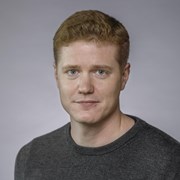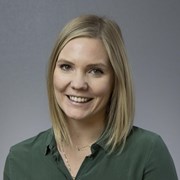Language models like ChatGPT are playing an increasingly significant role in our daily lives, and politicians and business leaders are discussing how these can best be utilized in schools and the workplace. But if artificial intelligence is to help us solve the truly major challenges, we must invest just as much, or preferably more, in other types of machine learning.
This was discussed when some of the world's most prominent researchers and excellent research talents in the field of physics-informed machine learning was gathered in Oslo at the PhysML Workshop in May.
Knowledge sharing in a log building
Nathan Kutz from the University of Washington kicked off the first day of the workshop with an engaging talk on learning dynamics from data. Kutz has introduced some of the physics-informed machine learning models that are most used today and is also a coveted science communicator.
Wil Schilders, president of the International Council for Industrial and Applied Mathematics, followed up with a talk on the challenges and opportunities for the industry to adopt AI solutions in their production lines.
Later talks then went more into the details, both on specific industrial applications, and concrete method developments.
– By allowing participants to give talks and present posters, the workshop created an ample space for knowledge sharing and discussions among PhD students and world leading experts in an informal setting, said Sølve Eidnes, senior researcher at Sintef Digital. The workshop was located at a log building at Holmenkollen.
First of its kind
The PhysML workshop was a part of the ongoing project PhysML: Structure-based machine learning for physical systems (RCN project no. 338779).
It was the first of its kind, organized by Sølve Eidnes and Martine Mahlum from the Department of Mathematics and Cybernetics at SINTEF Digital.
– We believe this workshop is important to recruit and integrate the top talents into a rapidly evolving research field and to ensure that Norwegian research communities will be important contributors to future developments, says Eidnes.
Titles and abstracts for all talks and poster presentations can be found on our website. SINTEF are aiming to organize a second workshop closer to the end of the project, in 2026.
Meanwhile, check out the live podcast episode from the workshop, at Smart Forklart.



